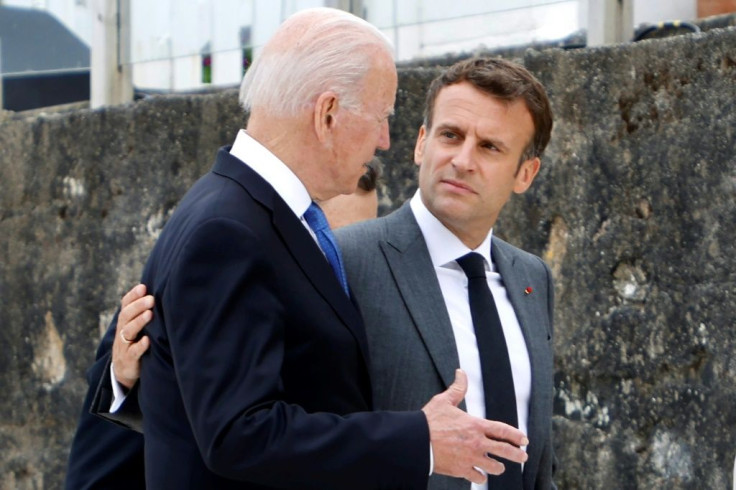EU Chief Reaffirms Alliance With US But Says 'A Lot Of Questions' Need Answers After Sub Row
The fallout between the U.S. and European Union over last week’s scuttling of a lucrative submarine deal for France continues to cloud this week’s meeting of the United Nations General Assembly in New York City.
Ursula von der Leyen, the president of the E.U.’s governing European Commission, arrived in New York on Sunday with a focus on encouraging increased global efforts to combat climate change in her address to world leaders. Instead, her agenda has been filled with answering questions about the E.U.’s stance on the row between Washington and Paris, and whether it is a harbinger of more divide within the transatlantic alliance.
Speaking to CNN on Tuesday morning, von der Leyen was pressed for a response from host Christine Amanapour on whether the submarine debacle will divide the E.U. and the U.S. at a time when they seek to confront a rising China. The E.U. chief disagreed and proclaimed that any attempt to exploit discord between the two would not succeed.
“We certainly will not let that happen because we know who our friends and allies are," said von der Leyen, adding that this partnership was based on “shared values and interests.”
On the submarine deal, she emphasized that “a lot of questions” need answers from the U.S. and its partners, the U.K. and Australia, for why they appeared to stiff-arm France out of the agreement. She explained that relations could not return to “business as usual” until they receive a full explanation for the decision.

"One of our member states has been treated in a way that is not acceptable, so we want to know what happened and why," von der Leyen said.
Last week, Australia reneged on a multi-billion dollar submarine deal with France in favor of acquiring nuclear-powered vessels from the U.S. and U.K. France was outraged by the decision and says that it was kept in the dark about Australia’s decision until just before the press conference announcing the move. In retaliation, Paris withdrew its ambassadors from Washington and Canberra for what the French foreign minister called “a stab in the back.”
European ministers rallied around France on Tuesday over the U.S. and Australian decision to strip Paris of a submarine supply contract. German Europe Minister Michael Roth said France's diplomatic crisis with the U.S. was a "wake-up call for all of us" on the importance of uniting an often divided E.U. on foreign and security policy.
Asked about how the dispute can alter the E.U.'s defense relationship with the U.S., von der Leyen said it will "step up" efforts to boost its own capabilities but that it would not make a clean break from current frameworks like the NATO alliance.
“Many of our member states are members of NATO, and NATO is the strongest military alliance in the world, but it is important to have a strong European pillar in NATO, and to have for the European Union the capabilities to act independently in theaters where for example NATO is not, but the EU is called upon," she told CNN.
© Copyright IBTimes 2025. All rights reserved.





















